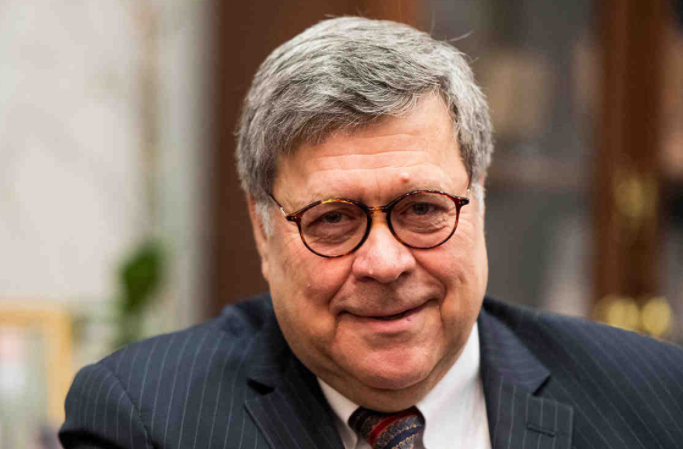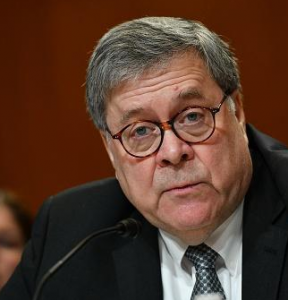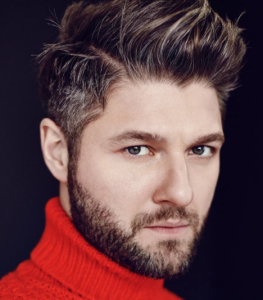About William Barr
William Pelham Barr, a very famous American attorney is simply known as William Barr. He was appointed by Donald Trump as the 85th United States Attorney General. Previously, he served in the position from 1991 to 1993 and had held numerous other posts within the Department of Justice, including serving as Deputy Attorney General from 1990 to 1991. From 14th February 2019, he began his current term. Prior to his appointment as Attorney General in the Trump administration, Barr had publicly criticized Special Counsel Robert Mueller's investigation into Russian interference in the 2016 election and criticized the probe for purportedly examining alleged obstruction of justice by President Trump. He is a member of the Republican Party.
Barr reportedly to skip House testimony after Senate grilling
Trump’s attorney general testified before the Senate Wednesday after Mueller criticized his summary of the Trump-Russia investigation report.
Attorney General Bill Barr’s Mueller report testimony
- Barr defended his handling of the investigation at a hearing where Mueller’s private remarks loomed large and partisan divisions were on display. Attorney General William Barr defended his handling of the Mueller report at a tense Senate hearing on Wednesday that highlighted the stark partisan divisions between Republicans and Democrats over the special counsel’s conclusions. He started off his testimony on the defensive, after a letter Mueller wrote to Barr on March 27 was made public Tuesday evening. In that note, Mueller explicitly criticized the letter Barr sent to Congress and released to the public outlining the “principal conclusions” of the investigation.
- Mueller said Barr’s summary “did not fully capture the context, nature, and substance of this Office’s work and conclusions,” and the special counsel urged Barr to release executive summaries he and his team had prepared to clear up public confusions about the investigation. Barr did not do so, and he defended that decision when pressed by Democratic senators, who also pressed him on how he concluded President Donald Trump did not obstruct justice.
- The letter of Mueller added a twist to Barr’s hearing.
- William Barr went out of his way to defend the president’s actions.
- Republicans wanted to talk about FBI overreach. Barr obliged.
- Barr’s testimony made it clear we need to hear from Mueller.

Source: @aclu.org
Where is William Barr from?
On 23rd May 1950, William Barr opened his eyes for the first time in New York City, the USA. His full name is William Pelham Barr. His nationality is American and his ethnicity is white. He was born to Donald Barr, his father, and Mary Margaret, his mother. His father taught English literature at Columbia University before becoming headmaster of the Dalton School in Manhattan and later the Hackley School in Tarrytown, both members of the Ivy Preparatory School League and also his mother taught at Columbia. As of today, his age is 68 but his age will be turning to 69 on his upcoming birthday on May 23rd as of 2019. His religion is Roman Catholic and his horoscope sign is Gemini. Regarding his siblings, he has three brothers. He grew up on the Upper West Side and attended a Catholic grammar school, Corpus Christi School, and then the non-sectarian Horace Mann School. After high school, Barr entered Columbia University, where he majored in government and graduated with a Bachelor of Arts in 1971. He then did two years of graduate study at Columbia, receiving a Master of Arts in government and Chinese studies in 1973. He then attended law school at the George Washington University Law School, graduating with a Juris Doctor summa cum laude in 1977.
What is the net worth of William Barr?
The net worth of this famous politician is estimated to have $10 Million as of 2019. His exact salary has not been disclosed yet but it is under review. We will let you know soon about his salary details once we get information. His source of income is from his politician career.
Who is William Barr married to?
Barr is a married person. He was married to Christine Moynihan Barr since 1973. Her spouse, Christine holds a master's degree in library science, and together they have three daughters: Mary Barr Daly, Patricia Barr Straughn, and Margaret (Meg) Barr. Their eldest daughter, Mary, born 1977/1978, was a senior Justice Department official who oversaw the department's anti-opioid and addiction efforts; Patricia, born 1981/1982, was counsel for the House Agriculture Committee; and Meg, born 1984/1985, is a former Washington prosecutor and cancer survivor (of recurrent Hodgkin's lymphoma), was counsel for Republican Senator Mike Braun of Indiana. As of today, the couple is living a happy life without any disturbances. His sexual orientation is straight.
What is William Barr's real height?
At the age of 68, William Barr still looks very handsome. He has got a charming smile on his lips attracting a lot of people towards him. He has a tall height of 1.76 m or 5 ft 9 in. He has got a balanced and healthy weight of around 80 Kg or 176 lbs. His biceps size is 15 in. His body measurement s 42-32-33 in. His eye color is Brown and his hair color is White.
What is the relation between William Barr and Robert Mueller?
Barr and Robert Mueller have known each other since the 1980s and are said to be good friends. Mueller attended the weddings of two of Barr's daughters, and their wives attend Bible study together.
What did William Barr accomplish?
- William Barr was employed by the Central Intelligence Agency from 1973 to 1977.
- He was a law clerk to Judge Malcolm Wilkey of the U.S. Court of Appeals for the District of Columbia Circuit from 1977 through 1978.
- Later, he served on the domestic policy staff at the Reagan White House from May 3, 1982, to September 5, 1983.
- President George H. W. Bush appointed Barr to the U.S. Department of Justice as Assistant Attorney General for the Office of Legal Counsel (OLC) in 1989.
- He was known as a strong defender of presidential power and wrote advisory opinions justifying the U.S. invasion of Panama and arrest of Manuel Noriega, and a controversial opinion that the FBI could enter onto foreign soil.
- He was appointed Deputy Attorney General, the official responsible for the day-to-day management of the Department in May 1990.
- He also directed the FBI's Hostage Rescue Team to assault the prison, which resulted in rescuing all hostages without loss of life.
- On 26th November 1991, he was approved unanimously by the Senate Judiciary Committee, was confirmed by voice vote by the full Senate, and was sworn in as Attorney General.
- He was later appointed then retired Democratic Chicago judge Nicholas Bua as special counsel in the Inslaw scandal in the same year.
- After a year, he appointed then retired New Jersey federal judge Frederick B. Lacey, to investigate the Department of Justice and the Central Intelligence Agency handling of the Banca Nazionale del Lavoro (BNL) Iraqgate scandal.
- Then, he was consulted extensively regarding the pardons, and especially advocated for the pardon of former Secretary of Defense, Caspar Weinberger.
- He later wrote an account of the investigation in his book, Firewall: The Iran-Contra Conspiracy and Cover-Up, in the year 2003.
- He was then appointed by Virginia Governor George Allen to co-chair a commission to reform the criminal justice system and abolish parole in the state.
- In the year 1994, he became Executive Vice President and General Counsel of GTE Corporation and served there for 14 years.
- He was briefly of counsel to the firm Kirkland & Ellis in 2009.
- He advised corporations on government enforcement matters and regulatory litigation from 2010 to 2017; he rejoined Kirkland and Ellis in 2017.
- In the year 2017, he said that there was "nothing inherently wrong" with Donald Trump's calls for investigating Hillary Clinton while the two were both running for president.
- He also said in 2017 that he didn't think "all this stuff" about incarcerating or prosecuting Hillary Clinton was appropriate to say but added that "there are things that should be investigated that haven't been investigated."
- He argued Trump was justified in firing Acting Attorney General Sally Yates over her refusal to defend Executive Order 13769 in February 2017.
- He faulted Mueller for hiring prosecutors who have contributed to Democratic politicians, saying his team should have had more "balance," and characterized the obstruction of justice investigation as "asinine" and that it was "taking on the look of an entire political operation to overthrow the president" in the year 2017.
- He sent an unsolicited 20-page memo to senior Justice Department officials and members of Trump's legal team in June 2018.
- President Donald Trump announced his nomination of Barr for Attorney General to succeed Jeff Sessions on 7th December 2018.
- The Senate Judiciary Committee held a vote on Barr on February 7, 2019.
- He was reported to the Senate on a 12–10, party-line vote.
- He was confirmed as Attorney General on February 14, 2019, by a 54–45 near party-line vote, with Sen. Doug Jones (D-AL), Joe Manchin (D-WV), and Kyrsten Sinema (D-AZ) as the three Democrats to vote Yea. Republicans Rand Paul (R-KY) voted No and Richard Burr (R-NC) did not vote.
- Later, he was sworn-in as the nation's 85th Attorney General by Chief Justice John Roberts in a ceremony at the White House.
- He is the first person to be appointed to a second non-consecutive term as Attorney General since John J. Crittenden in the year 1850.
- Assistant Attorney General Stephen Boyd told the House Oversight Committee that Barr instructed Justice Department official John Gore to refuse a subpoena to testify in front of that committee, saying that a Justice Department lawyer must be present at Gore's testimony and that the committee had not allowed that on 1st May 2019.
- A day before Barr's hearings for Attorney General, Barr sent written testimony to the Senate Judiciary Committee regarding the eventual final Mueller report, saying "it is very important that the public and Congress be informed of the results of the special counsel's work ... For that reason, my goal will be to provide as much transparency as I can consistent with the law" on 14th January 2019.
- Robert Mueller concluded his special counsel investigation and gave the final report to Barr for examination on 22nd March 2019.
- He wrote a four-page letter to Congress summarizing the report's principal conclusions: first, that the Special Counsel did not establish conspiracy or coordination between the Trump campaign and Russia's efforts to interfere with the 2016 election; and second, that the Special Counsel made no decision as to whether to prosecute Trump for obstruction of justice, quoting "while this report does not conclude that the President committed a crime, it also does not exonerate him." Barr and Deputy Attorney General Rosenstein themselves concluded that the evidence did not establish obstruction of justice beyond a reasonable doubt, and made the decision not to press the charge on 24th March.
- After Mueller sent his letter and the men discussed the matter on the phone, Barr testified to the House Judiciary Committee on 10th April 2019: "I don’t know whether Bob Mueller supported my conclusion."
- Department of Justice released a redacted version of the special counsel's report in the morning of 18th April 2019.
More information about William Barr's biography can be grabbed from wiki.






